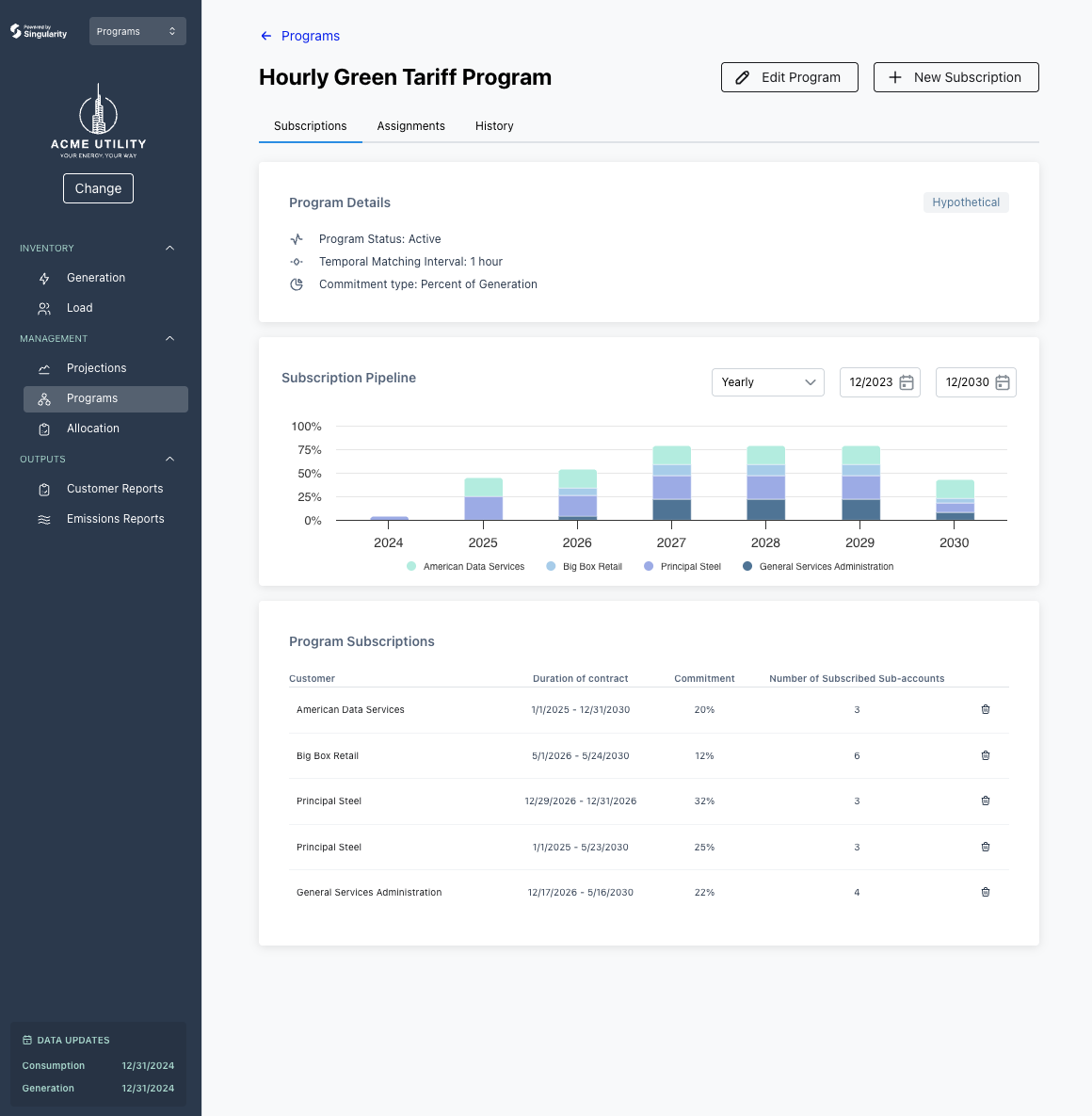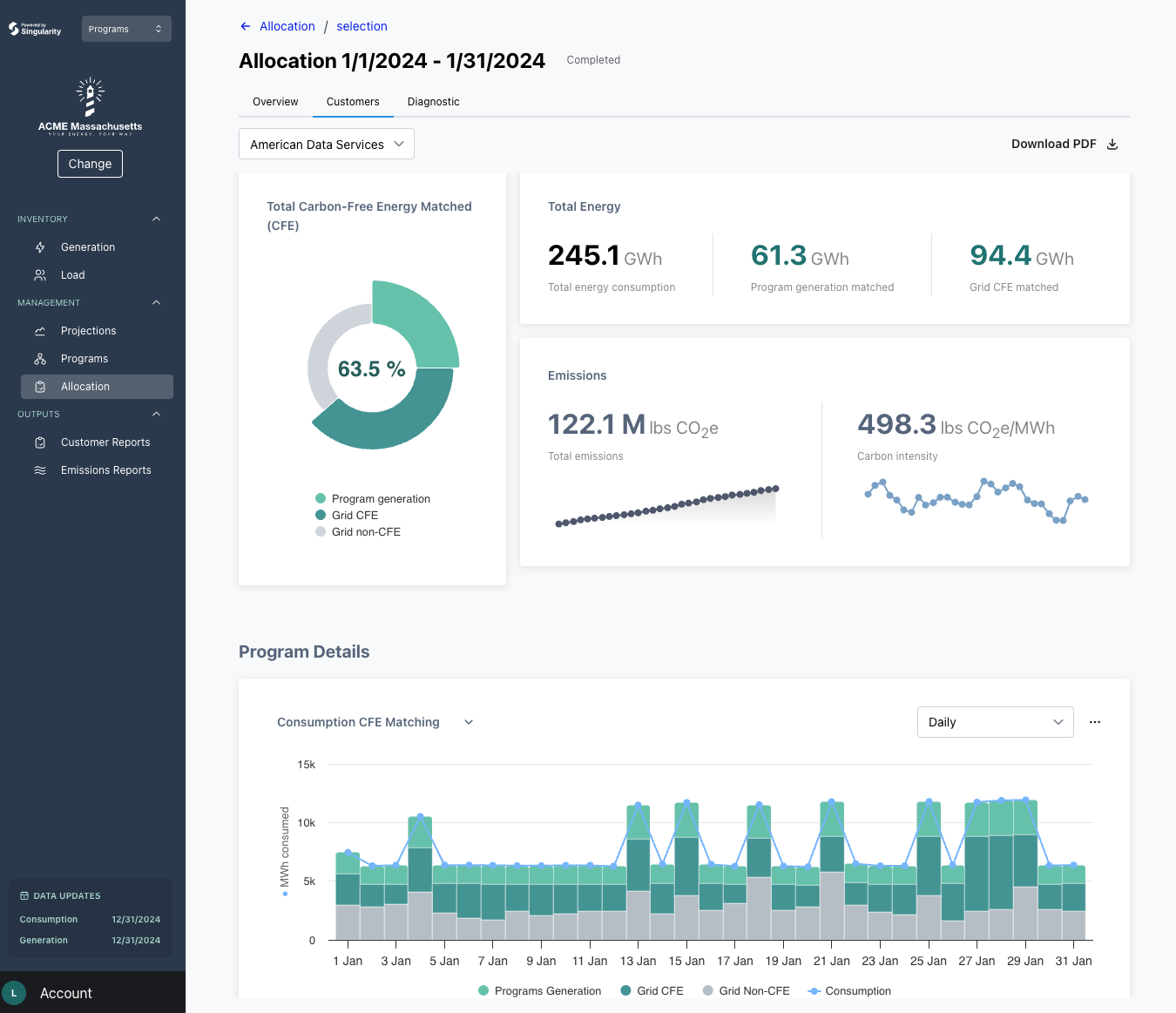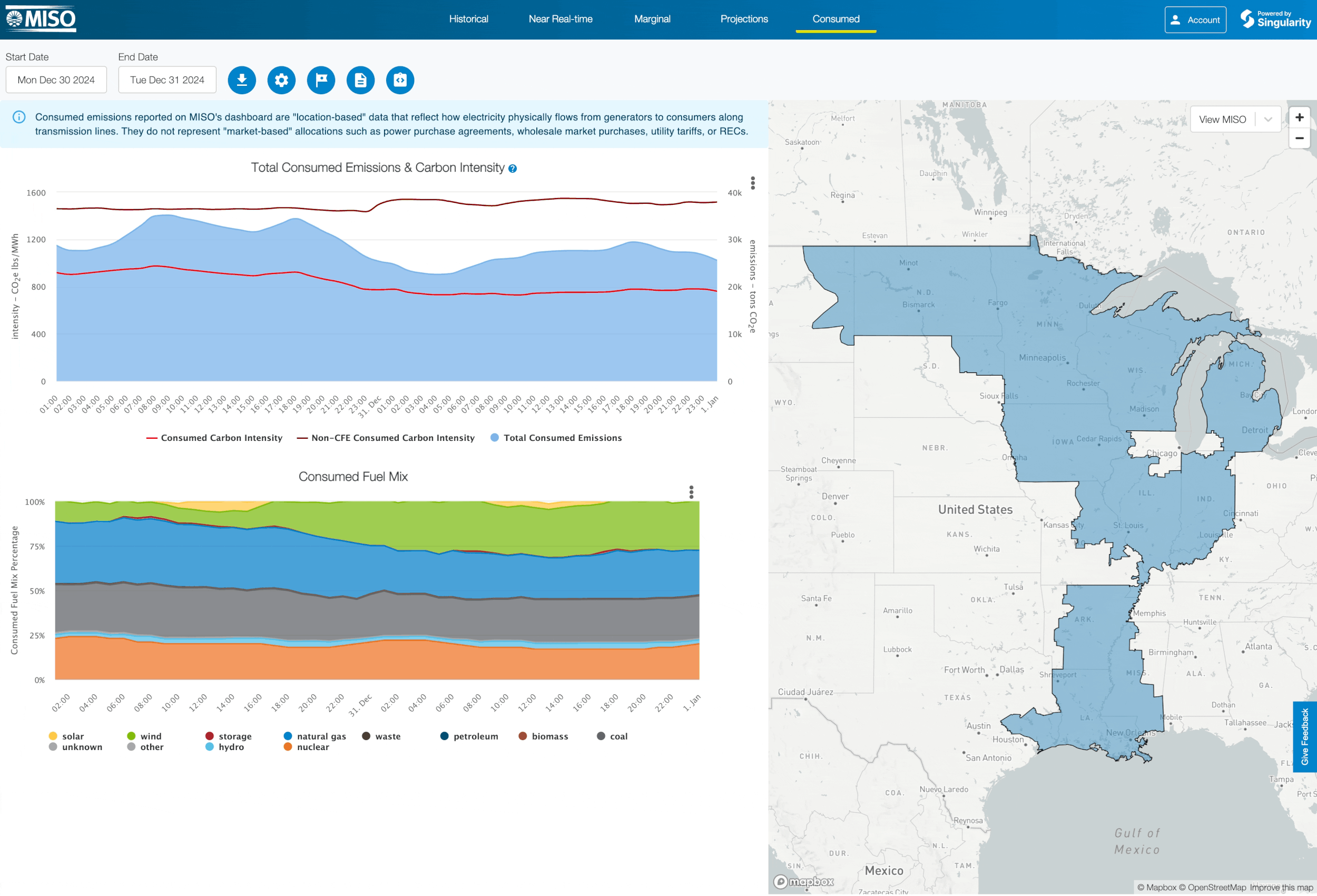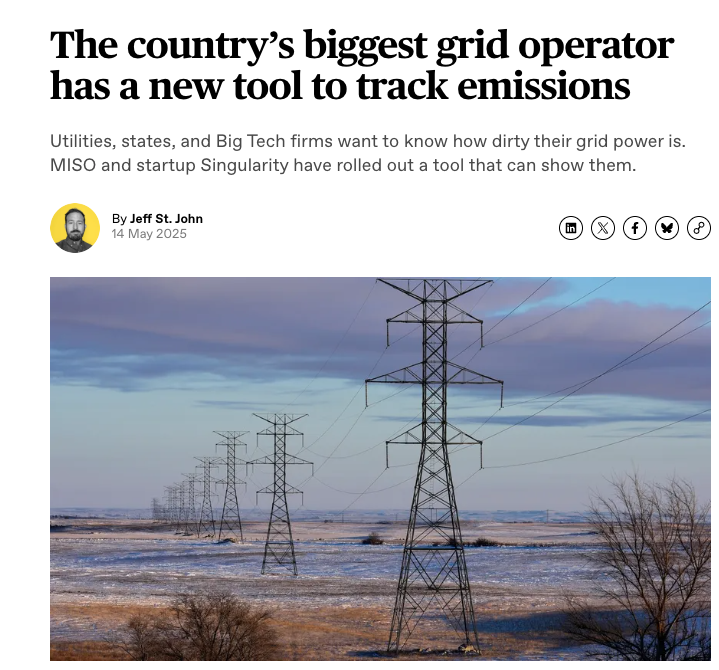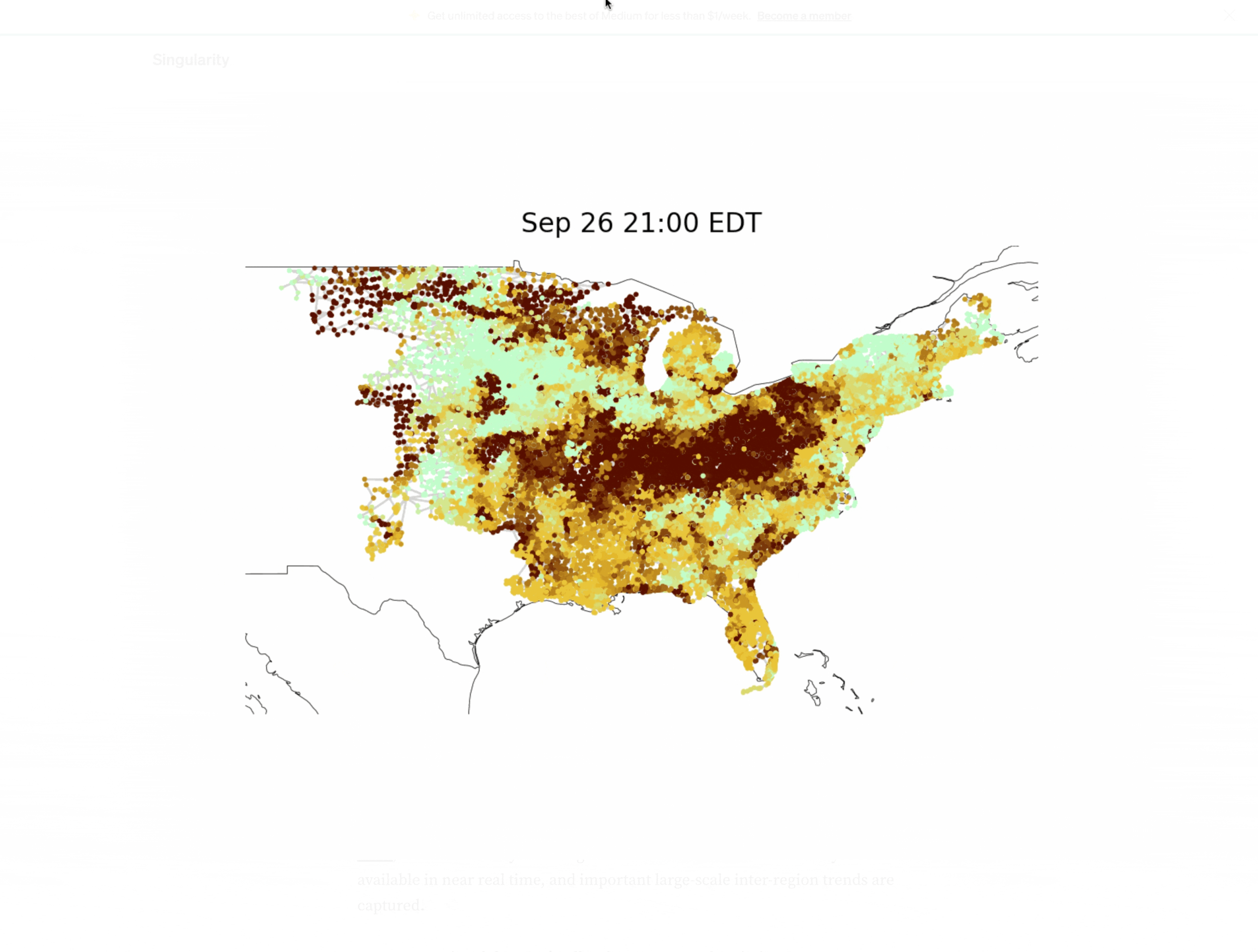
Advanced Data & Software Solutions for Clean Energy and Carbon Management
Powering decarbonization for utilities and grid operators.
Trusted by leading utilities and grid operators.

Dream it
Dream it
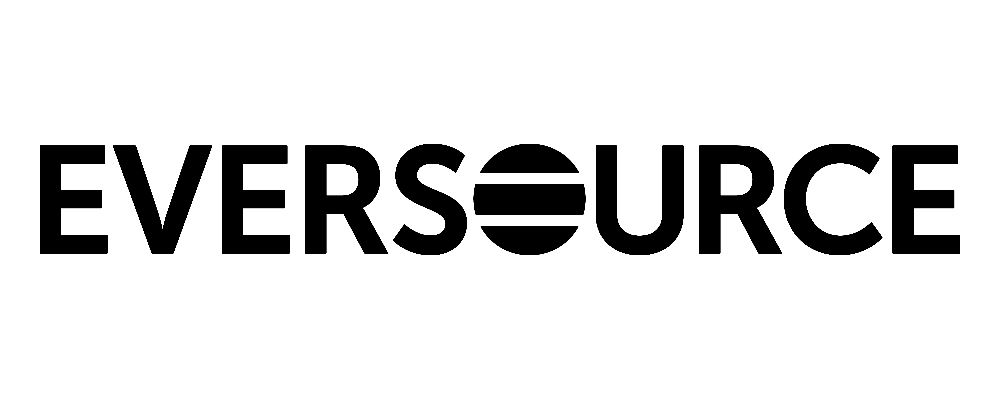
-

Clean energy program management
Streamline and scale your clean energy program offerings with ease.
-

Environmental reporting
Make compliance and voluntary reporting easy through comprehensive emissions and energy attribute certificate tracking and accounting.
-

Customer engagement
Empower your customers with sophisticated data, analytics, and reporting solutions.
Clean Energy Program Management
Scale your clean energy programs through faster and easier program design, execution, certification, and reporting
Save time and avoid double counting through auditable attestation and energy attribute certificate (EAC) retirement
Streamline program management through predictive analytics, automated workflows, and integration with third-party EAC registries
Flexibly support all tariff designs (whether hourly or annual) and contract structures to match customer consumption with generation, and automatically compute standard delivery mix using Singularity’s leading all-generation allocation engine
Environmental Reporting
Oversee territory-wide supply and emissions tracking, forecasting, analytics and reporting in a single auditable platform
Accurately estimate hourly emissions from generation using GRETA, Singularity’s proprietary heat-rate based emissions engine, to enable near real-time tracking
Future-proof your solution to support all evolving accounting frameworks to meet different customer needs, through Singularity’s leading carbon analytics engine that implements the best-in-class, location-based, market-based (24/7 CFE), and avoided emissions accounting methodologies
Centralized management of all energy attribute certificates to simplify meeting various compliance and voluntary reporting needs
Enable standard customer-level reporting through robust standard delivery mix and retail emissions rates that avoids double counting
Customer Engagement
Scalable to support diverse stakeholder needs, including custom reporting, data exports, API solutions, and visualization dashboards
Empower your customers’ decarbonization journeys through unprecedented visibility and analytics into their specific supply mix and Scope 2 emissions reporting, including location-based and market-based emissions using the best data directly from utilities/ISOs and Singularity’s leading all-generation allocation and emissions engines
Increase customer satisfaction by showing the impact of their program participation
Align your customers’ decarbonization targets with your long-term resource plan and various clean energy and demand-side management program offerings.
Support sales through what-if analysis to show the potential impact of customer participation in different programs
FAQs
-
Our software solution supports location-based, market-based, and avoided emissions use cases. Per the GHG Protocol, a location-based method reflects grid emissions from energy consumption. In addition to standard location-based accounting approaches, Singularity has also developed CarbonFlow™, an emissions tracking method utilizing power flow tracing of emissions from source to sink. A market-based method reflects emissions from energy attributes that an entity owns, has purchased (e.g., EACs), or which is purchased on their behalf. Avoided emissions, also commonly referred to as attributional or consequential emissions, support estimating the GHG impact of a decision or avoided decision. Avoided emissions calculations commonly utilize a marginal emissions factor, which represents the GHG emission rate of the marginal power generation source that would either change output or be built in response to a decision.
-
Energy attribute certificates, or EACs, comprise of both renewable energy certificates (RECs) and alternative energy credits (AECs). These represent the clean energy attributes of electricity generated from renewable and alternative energy sources.
-
Singularity’s platform structure supports both hourly and annual accounting program structures.
-
The platform’s certificate management workflow allows utilities to manage generation attestation on behalf of their customers. If a third party registry is used, Singularity provides a registry integration so that certificates (both annual and hourly) can be retired in the beneficiary’s account.
-
Standard delivery mix, also referred to as standard offer or standard supply service (SSS), is what a typical ratepayer in a utility territory receives. This is distinct from “residual mix”, which represents all unclaimed or unsold electricity generation attributes.
For a deeper dive into the difference between residual mix and standard supply service, check out our blog post on this topic:
-
The platform is designed to take multiple different sources of data and transform them into a standard format. For our utility offerings, we use a utility’s internal systems for hourly generation inventory data, hourly customer consumption data, program information, and supplement with publicly available sources when needed.
-
Generator REal-Time emissions Assignment (GRETA), is a real-time emissions calculation engine that estimates the direct stack emissions of GHGs from an electric generator. GRETA represents a significant improvement to the status-quo approach of using an annual average emissions factor for accounting. View the technical documentation here.
“Today’s methodology includes very gross approximations of the entire regions — emission factors based on whatever is being generated throughout the region and whatever is being consumed throughout the region…Singularity allows us to use the much better location-based calculation. So if a particular part of the region has more solar or more nuclear, or more wind, then it should have a better carbon footprint.”
Vandan Divatia, VP of Transmission Policy, Interconnections and Compliance
“Tying carbon emissions to a specific customer’s usage is complex, and as we continue to innovate, collaborations like this one with Singularity will help us more efficiently and economically advance emerging solutions our customers expect.”
Clay Rikard, VP of System Planning
Insights


